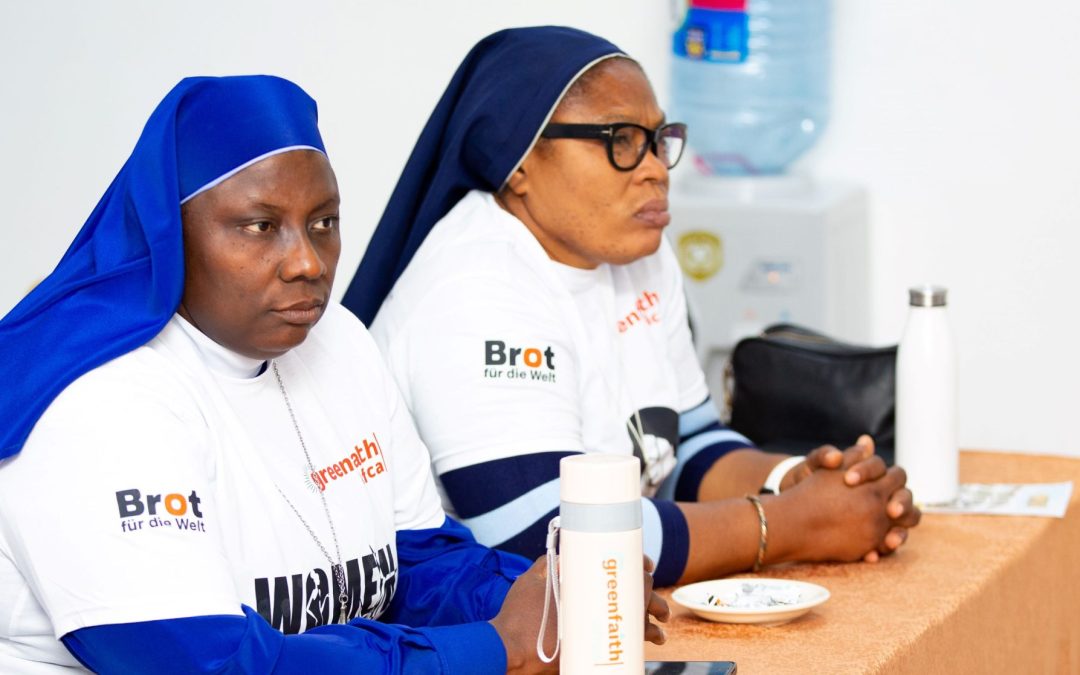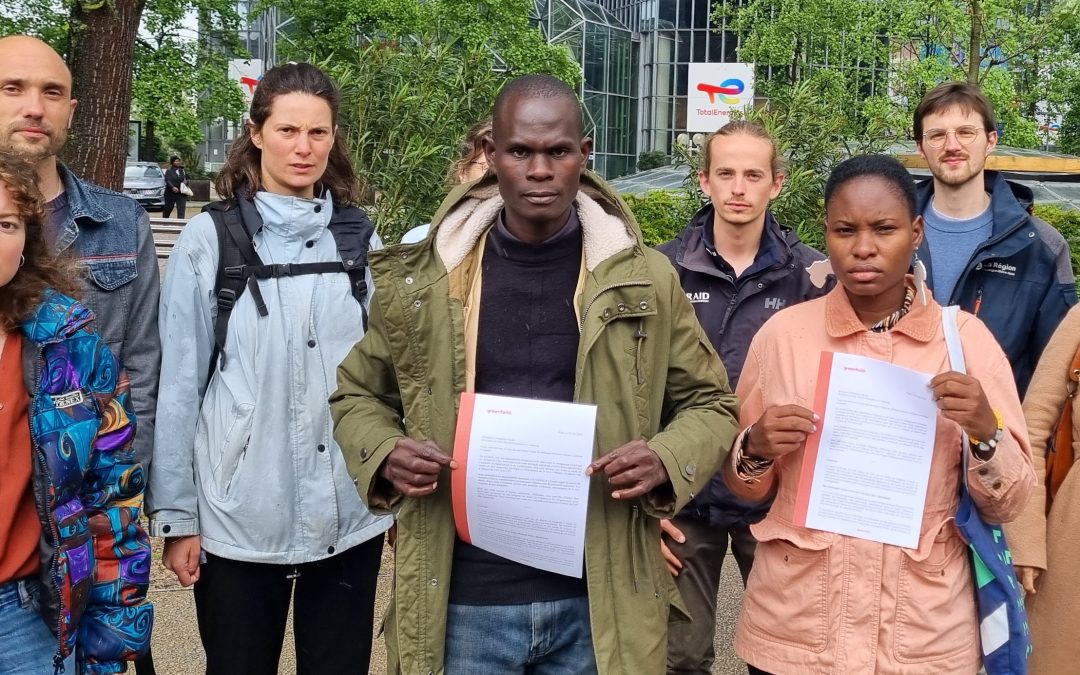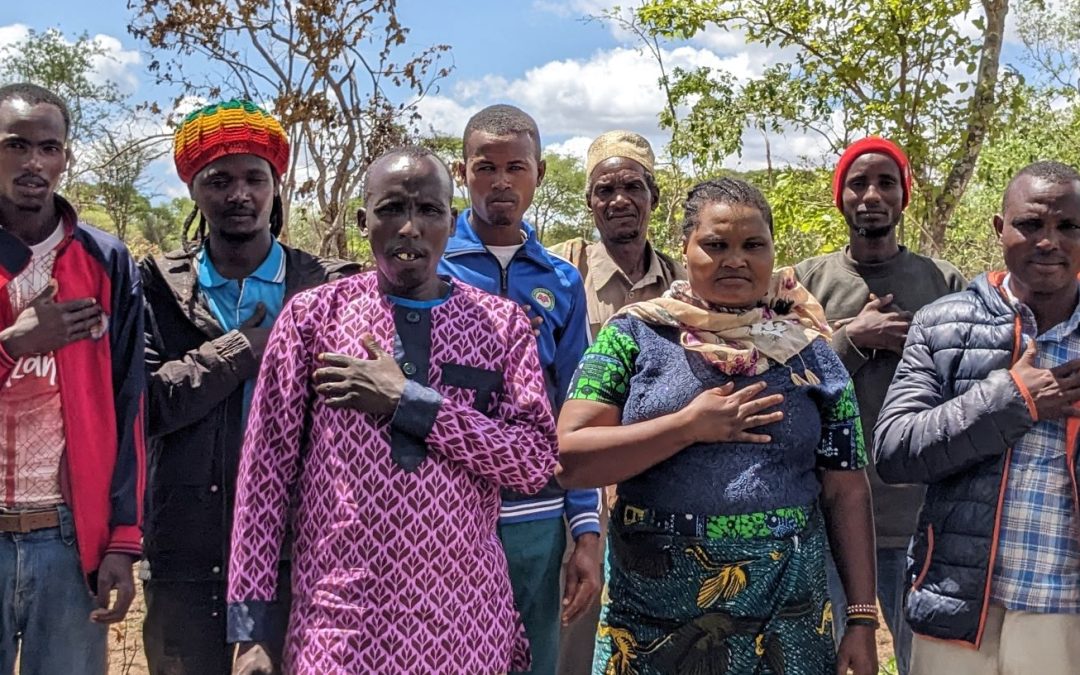Silence is violence: Faith communities urged to strongly condemn fossil fuel extraction as GreenFaith launches Africa office
Africa has been called upon to speak in the strongest terms possible against fossil fuels and extractive industry because of the evident human rights violations, family displacements, cultural interference, and the impacts on the environment associated with the said industries.
Speaking during the launch of the GreenFaith-Africa office in Nairobi, Meryne Warah, the GreenFaith Global Director for Advocacy, drew the attention of the multi-faith gathering at the All African Council of Churches (AACC) premises in Nairobi to the destruction the fossil fuels industry had caused people in Africa.
“We have enough renewable natural capital that can be harnessed to provide energy in Africa while at the same time living harmoniously with biodiversity,” said Ms Warah, adding that the faith communities were best placed to speak truth to powers that make decisions allowing foreign companies to destroy Africa’s beauty, environment and biodiversity through the oil and extractive industry.
The meeting was attended by representatives of indigenous communities, women and youth from several parts of Africa, including Ghana, Nigeria, Congo, Tanzania, Uganda and the DRC. There were also faith leaders from the Muslim, Hindu, Christian, and other communities.
Several teams presented videos showing the effects of fossil fuels in their communities. Tanzania and Uganda shared videos of the East African Crude Oil Pipeline (EACOP) affected persons, many complaining about poor compensation for land taken and disrespect for their kin’s graves during displacement, among other ills. Nigeria had evidence of oil spills and gas flaring in Port Harcourt, in the Niger Delta, which has polluted rivers and the soil, killing the farming and fishing communities’ sources of livelihood, and increasing cases of respiratory and other diseases.
Reacting to the videos, Rev. Dr Gibson Lesmore, the Director of Programs at the AACC, said: “We, as human beings, have a moral duty to preserve the embodiment of God in humanity, and that is by protecting our habitats.”
He rebuked efforts to sustain fossil fuels proliferation by playing with the language, especially at the global climate talks. “They are now talking of phase-down when we need a phase-out. The oil exploration in Africa is aided by insiders. We know the insiders, but we are not telling them the truth. Let us be united to speak truth to power around issues of climate change because these are matters of life and death. Silence is violence,” he said.
He called for more attention to the solutions different African and indigenous communities offered. “Listen to African indigenous knowledge and nature-based solutions, even in the face of development and technological advancement,” he said, adding that the global North’s efforts to dangle the carbon market when they had refused to honor the $100 billion climate fund pledge was pretentious. “Faith communities are our only hope. We must not politicize issues of climate change. Capitalism places its efforts on profits against human well-being. Matters of climate change are matters of life and death. No hypocrisy. No deceit. No lie,” he said.
GreenFaith Executive Director Rev. Fletcher Harper said: “Africa is on the frontline of the climate crisis. Global North corporations want to exploit the continent’s resources and addict Africa to fossil fuels. This is patently immoral. Our GreenFaith Africa team is campaigning for clean, safe, affordable, reliable energy for every African. We’re calling for millions of green jobs to lift people from poverty. We demand an immediate stop to new fossil fuel projects and loss and damage funds for those who have suffered permanent losses from climate change. Our faiths require nothing less.”
Hindu council of Kenya’s Sujarta Kotamraju urged participants to strengthen the link between spirituality and ecology. “Our differences in faiths must not enable destruction of mother earth, especially through fossil fuels extraction,” she said, adding that faith has a role to play in driving climate justice.
Elija Toirai, a representative of the indigenous community, said: “We must flow with nature in everything we do. The values we teach our children should encourage conservation. Indigenous people know climate change destroys their spaces. Certain cultural and ceremonial activities do not happen anymore, or their frequencies have reduced because climate change has messed up some of the sacred places where they used to happen”.
He said indigenous people bring historical and indigenous knowledge that helps deal with climate change, calling for more inclusion is solution finding. He thanked GreenFaith for strategically working with faith and indigenous communities as equal partners.
Ms Warah added: “When talking about Loss and Damage, it also means losing your identity. The indigenous communities have lost their identities. This is not something you can ever get back, even with the Loss and Damage fund”.
Sabina Chege, the Kenya Women of Faith Secretary, said women were disproportionately affected by climate change, and needed to be more economically empowered to offer solutions. “Women must be involved more in the fight for climate justice.”
Ezekiel Chibeze, the Executive Director of Strategic Youth Network for Development Executive Coordinator from Ghana, said youth have a role to play in climate education. “We are pushing advocacy and showing that young people have a solution to bring to the table. We are championing green ideas and jobs by turning organic waste into fuel for the stoves and also having young farmers in agroecology to deal with food security and enable the agriculture sector to employ more people. We have to do our job now. In the next 30 years, we will have a new crop of young people. We must nurture them now.”
Salim Bayani, a Muslim faith leader, said: “We were born with the responsibility of taking care of the environment. Nothing that is on this earth has not come through the Bible or the Quran, or other holy books”.
GreenFaith-Africa is now in 12 African countries. It brings together Christians, Muslims, those with traditional African beliefs, Hindus, and others for climate justice. It works with grassroots people of faith to stop new fossil fuel projects, and to call for universal access to clean energy and green jobs that can lift communities to a better future. Currently, GreenFaith is campaigning to stop the EACOP and has sustained momentum against any new oil and gas expansion or project.




